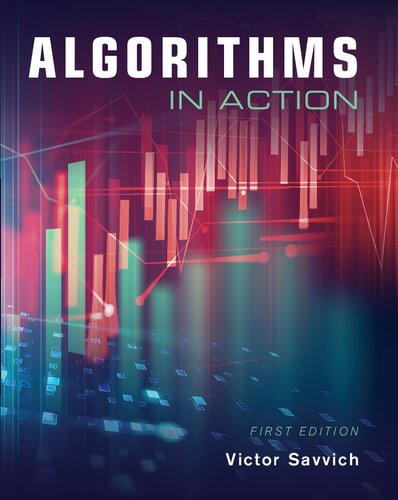

Most ebook files are in PDF format, so you can easily read them using various software such as Foxit Reader or directly on the Google Chrome browser.
Some ebook files are released by publishers in other formats such as .awz, .mobi, .epub, .fb2, etc. You may need to install specific software to read these formats on mobile/PC, such as Calibre.
Please read the tutorial at this link: https://ebookbell.com/faq
We offer FREE conversion to the popular formats you request; however, this may take some time. Therefore, right after payment, please email us, and we will try to provide the service as quickly as possible.
For some exceptional file formats or broken links (if any), please refrain from opening any disputes. Instead, email us first, and we will try to assist within a maximum of 6 hours.
EbookBell Team

5.0
38 reviewsAlgorithms in Action effectively introduces students to a variety of techniques for designing algorithms with a focus on developing intuitive understanding. Readers learn how to successfully construct foundational algorithms, preparing them for more advanced courses in the discipline, as well as professional application.
Over the course of nine chapters, students learn fundamental concepts critical to the development of algorithms, paired with detailed visual representations that walk readers step-by-step through algorithm execution. The text begins with a review of runtime complexity, lower bound for sorting, and trees and graphs, then moves into more complex topical areas, including amortized analysis, heaps, dynamic programming, network flow, linear programming, and NP-completeness. The book includes over 160 figures, as well as review questions and exercises at the end of each chapter, to encourage learning, retention, practice, and application.
Developed to provide students with an approachable and effective introduction to algorithm design, Algorithms in Action is an ideal resource for advanced undergraduate or master-level courses in computer science or related technical disciplines. Foundational knowledge of discrete mathematics, data structures, and calculus is recommended as a prerequisite.
Victor Savvich has taught courses in machine learning, algorithm analysis, mathematics, programming, and computer science nationally and internationally. His academic areas of interest include applied computational mathematics, computer algebra, experimental mathematics, and pen-based computing.